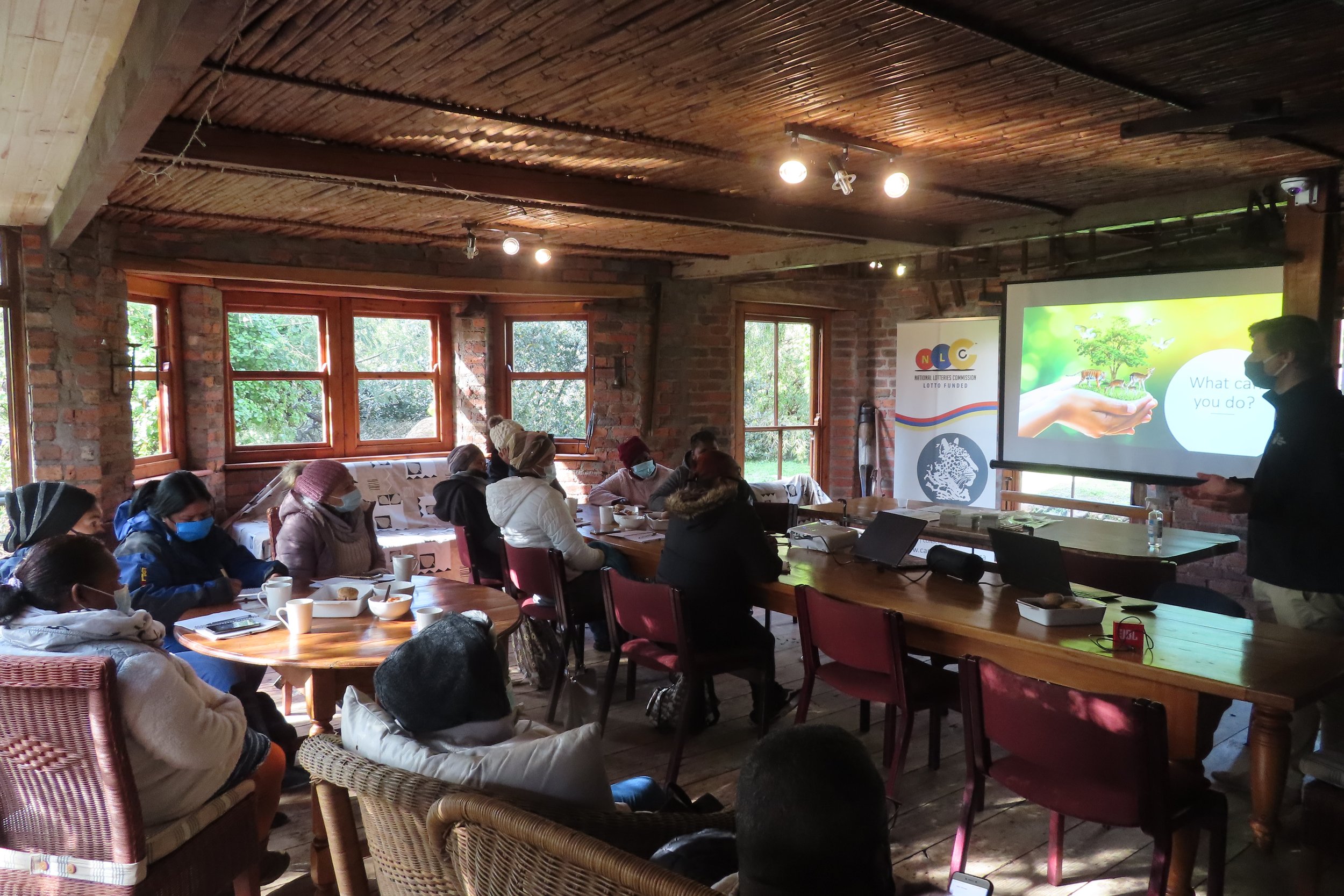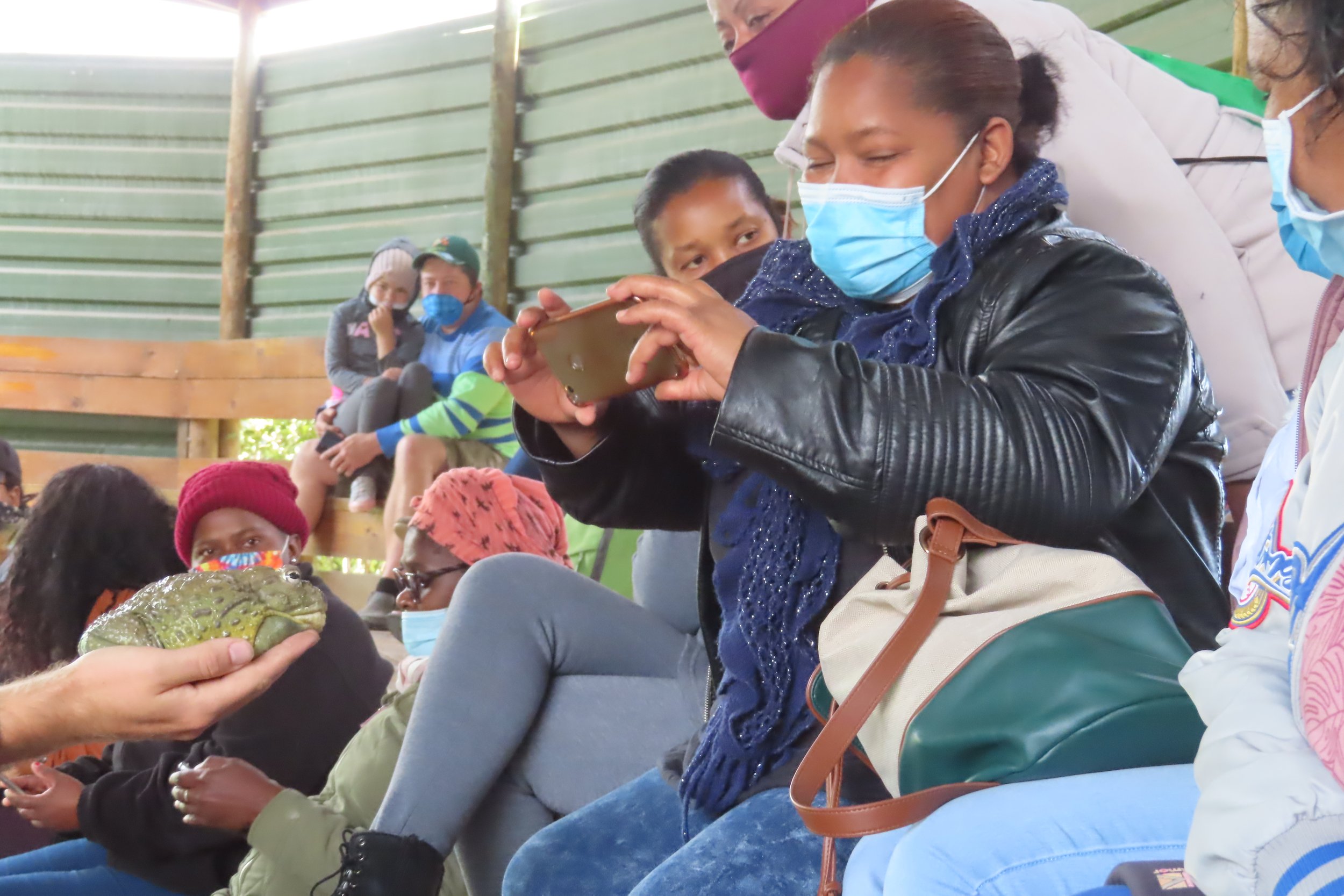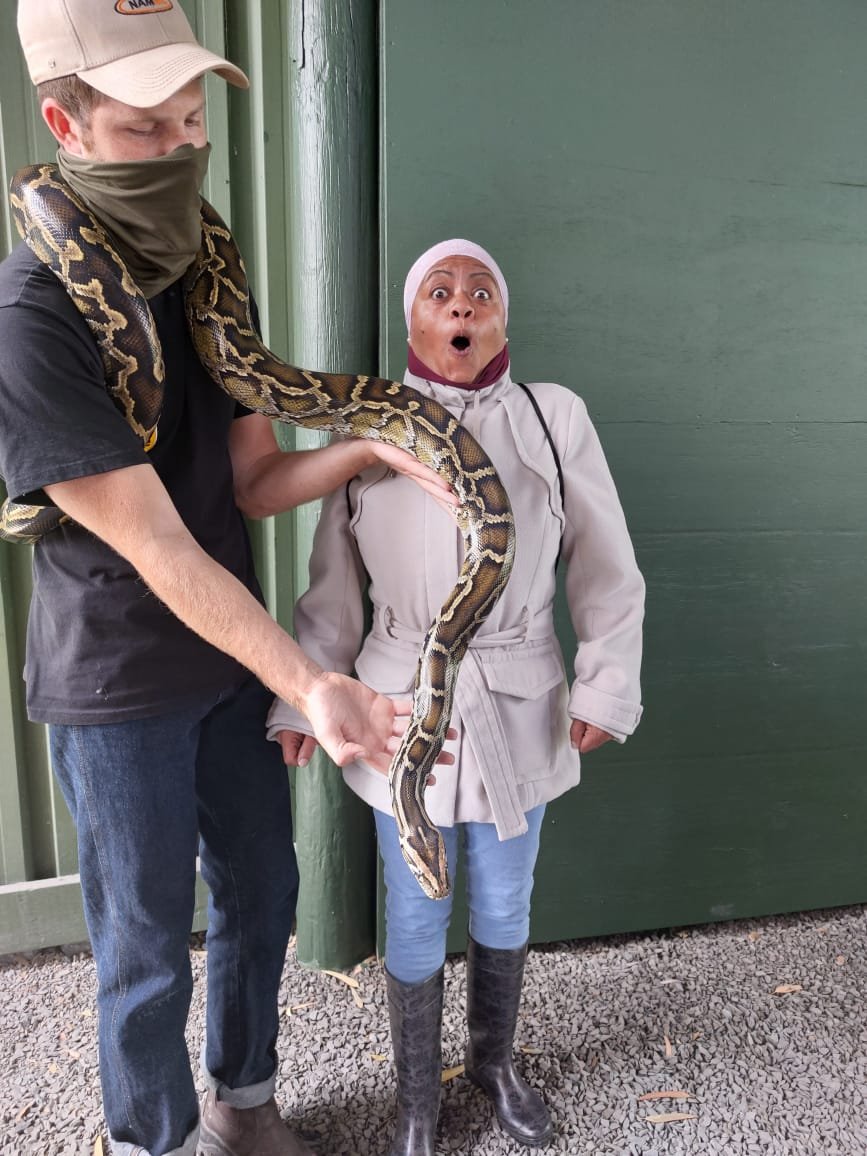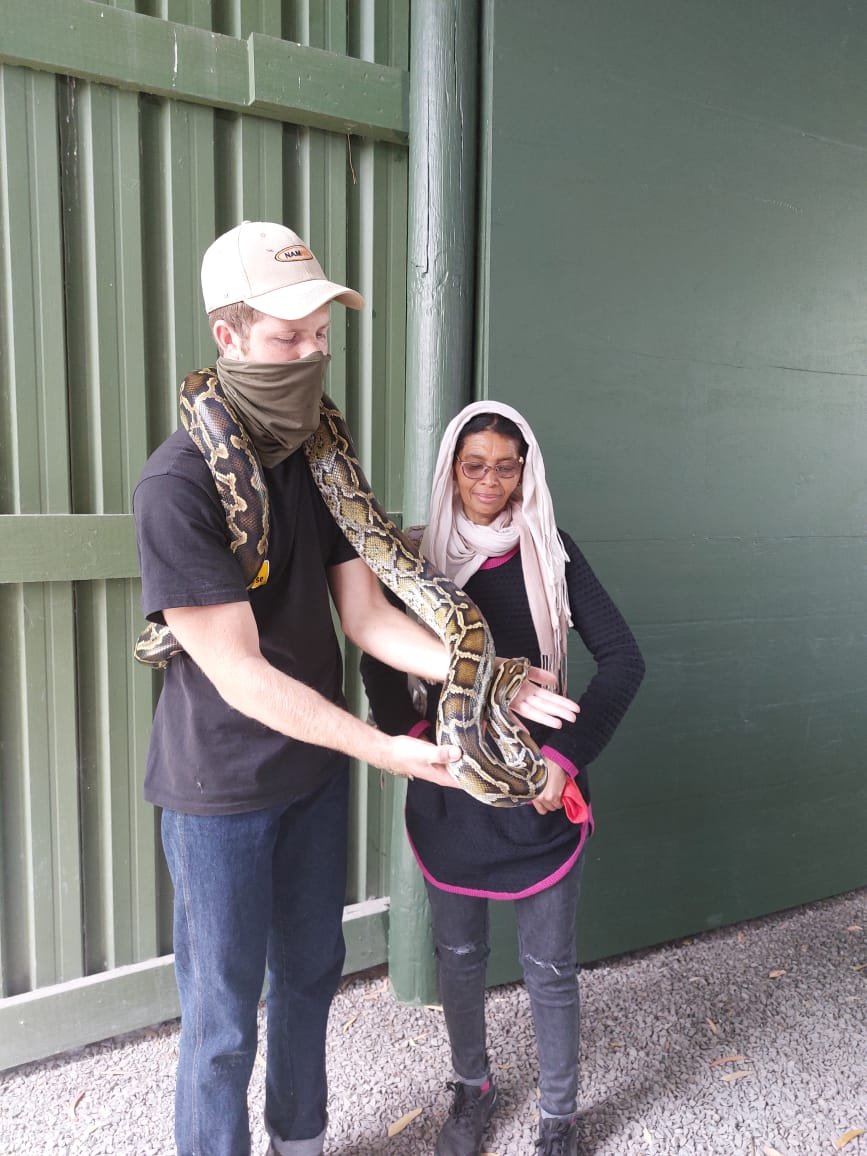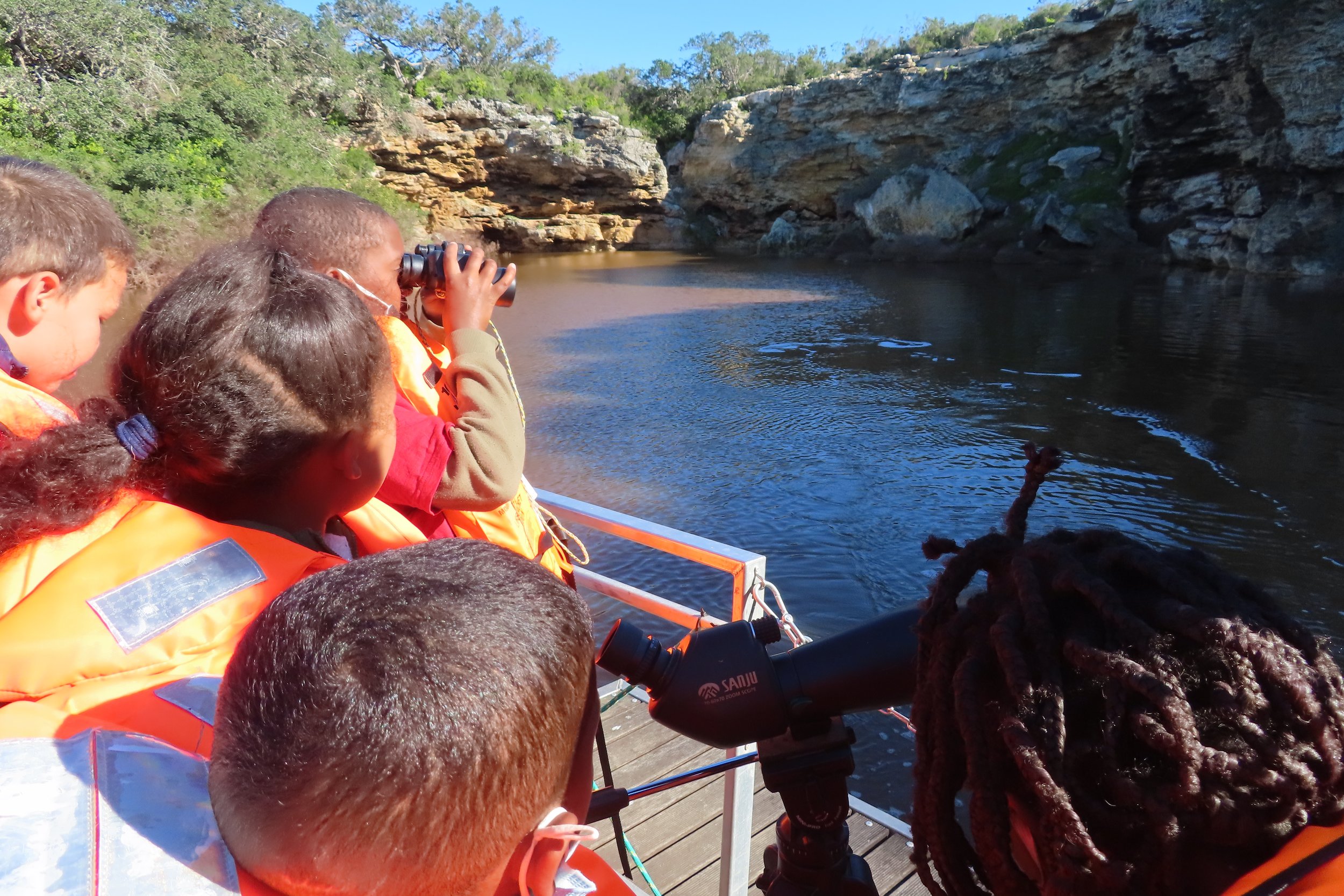Reflecting on the year 2021, we found that Cape Winelands Biosphere Reserve partnerships, collaboration, and passionate mentors invested in their communities are the cornerstone for long-term solutions in outreach and relevant meaningful impact.
The Cape Winelands Biosphere Reserve mobile education unit STEAM-Y (science, technology, engineering, art, and mathematics - for youth) has become a regular component to outings. The project, originally an educational Science Bus, has become a versatile space and catalyst for building partnerships and encouraging collaboration, with the aim to ignite curiosity in children and young adults who have experienced an unstable academic year because of the pandemic and its impact on social norms.
Through sharing resources, whether educational material, pristine areas such as nature reserves, transport, or institutional knowledge, the CWBR team together with partners are co-creating innovative ways to foster the importance of curiosity, learning, and self-development for children and young adults to navigate through the 21st century.
The long-term vision is to support teachers through aligning with the curriculum taking education off the blackboard, and co-facilitating a travelling Educational Circus, wherein partners come together for pop-up educational events.
In 2021, we also welcomed our new Board member Dr Melissa Boonzaaier-Davids to team, whose knowledge and enthusiasm will be invaluable. Portfolio Education and Youth Development.
Celebrating UNESCO’s 75th and the Man and Biosphere Reserves 50th Anniversaries will carry on into the new year. The CWBR team have some exciting events in store.
We wish our readers and extended Biosphere Reserve family a happy festive season and a great start to the new year!
A special thank you to Athénée Action Humanitaire, who make the educational projects possible.
STEAM-Y Partnerships
Action Volunteer Africa and our joint project: the Mobile Career Café. AVA is a non-profit organisation that empowers youth to be ready for the world of work. The purpose is to assist youth in how to be resourceful and identify opportunities/resources in their immediate community. The CWBR STEAM-Y educational unit, as the Career Café serves as a space for exploring fields in conservation, research, technology, and more through hands-on activities and discussion with facilitators.
CapeNature, a longstanding partner whom we have done collaborative educational outreach with this year. We partnered for a Youth Outreach Week at Wolwekloof Day Camp in October and co-hosted Awareness Workshops, together with Action Volunteers Africa, to create access to educational tools and facilities available for local community workers and mentors in Stellenbosch and Wolseley area.
Educational outings involving 'Learning about the Cycle of Water’ have also been facilitated by CapeNature for our Early Childhood Development Legacy participants as part of the Rotary Global Grant Project and Care Career Connection, an organization assisting youth and young adults with intellectual and physical disabilities to navigate through everyday life by empowering them with tools to overcome challenges and create a vision of hope.
Our partnership with the ladies of Flourish who we in fact got to know in 2020, at the start of the pandemic. It is a privilege to work with such dedicated ladies who are involved in their own community’s health, dignity, and future.
The CWBR, initially supported the community run soup kitchens, which had grown from 3 to 10 locations to meet rapid increase in hunger due to loss of jobs. Feeding over 3000 individuals three times a week. Being asked for assistance by the Flourish ladies to start up community gardens, to promote health, nutrition, and food security within the community, the CWBR team has facilitated ongoing Food Security Workshops and helped implement food gardens. Since then, a mental health workshop has been facilitated with the participants of Flourish in honour of Mental Health Month, as well as the CWBR volunteers joining a celebratory graduation of the Flourish participants.
Usiko Stellenbosch and our joint 2021 project: Mobile Minds. Utilizing the STEAM-Y educational unit to share hands-on activities to excite and foster curiosity about science, technology, engineering, art, and mathematics for youth. Together, we celebrated South African Heritage Day and Usiko's 20th Anniversary with the local community in Jamestown, at the Usiko Hub - The peoples Farm.



